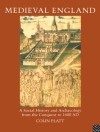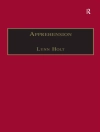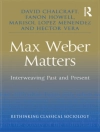Tracing the social history of modern German Jews from the end of the 18th century up to the aftermath of World War II, Miriam Rürup follows their ascent into the middle and upper middle classes through repeated experiences of setbacks but also of self-assertion. In doing so it is explained how Jewish life changed under the auspices of emancipation and what impact these changes had on the demographic and social profile of the Jewish minority. With a focus on the daily interactions between Jews and other Germans when choosing a home, profession, or school, for example, Social History of German Jews shows the contrasting processes of integration and exclusion in a new light.
İçerik tablosu
Preliminary Remarks (Introduction)
Chapter 1. Legal and Social Framework: Progress and Setbacks in Emancipation
- Emancipation
- Antisemitism and the Reversal of Emancipation
- Entry into Middle-Class Society (Embourgeoisement), Assimilation, and Intra-Jewish
- Distinctions
- Demographic Characteristics
Chapter 2. Life and Upbringing
- Child Education
- Marriage
- Food and Dietary Issues
Chapter 3. Education
- Schooling
- Higher Education
- Language
Chapter 4. Work
- Trades, Sectors, and Industries
- The Civil Service
- Women in the Workplace
- Between Persistence and Change: New types of Jobs in the Weimar Republic
- A Transformation of the Professional Profiles and the End of Occupational Diversity: National Socialism
- New Beginnings
- The Military
Chapter 5. Places of Residence and Mobility
- Urbanization
- Neighborhoods
- Migration
Chapter 6. Political Engagement and Activism
- Political Participation
- Jewish Clubs, Association, and Societies
- Gemeinde
Chapter 7. Conviviality and Socializing
- Reading Together
- Sports
- Youth
Chapter 8. Research and Representation
- Scholarship and Science
- Institutionalization of Research and Scholarship
- Culture
Conclusion
Suggestions for Further Reading
Yazar hakkında
Miriam Rürup is a historian and Director of the Moses Mendelssohn Center for European-Jewish Studies (Potsdam) and Professor for European-Jewish Studies at the University of Potsdam. She is the author of Ehrensache. Jüdische Studentenverbindungen an deutschen Universitäten, 1886–1937 (Göttingen: Wallstein 2008). Together with Simone Lässig she co-edited the volume Space and Spatiality in Modern German-Jewish History (New York: Berghahn 2017).












